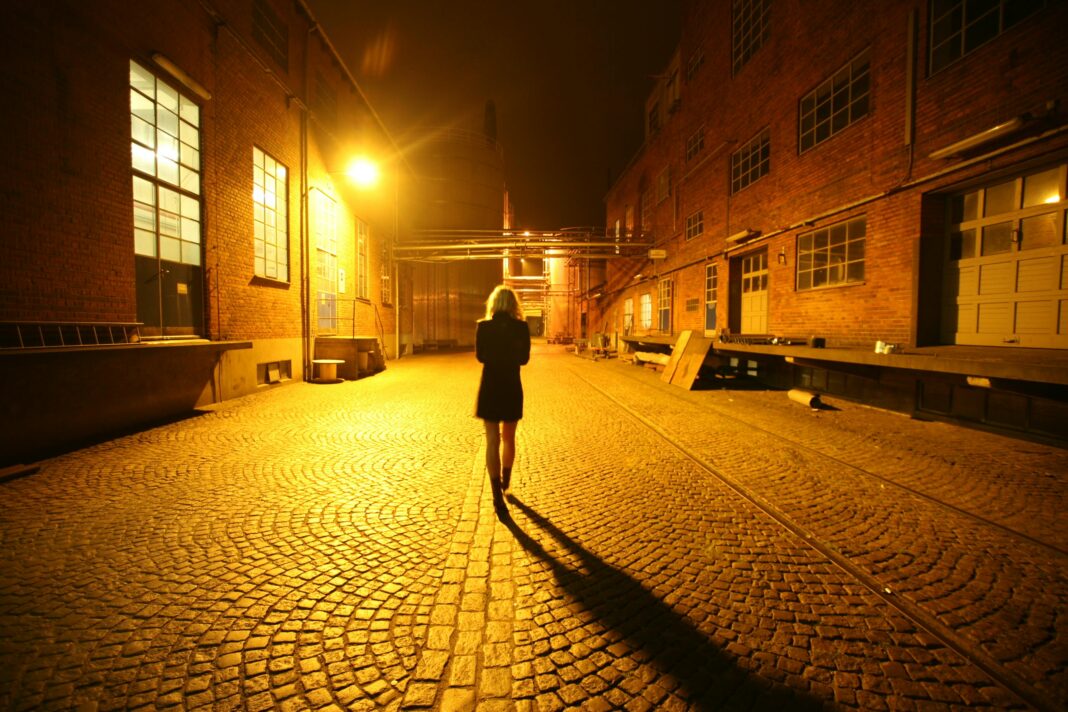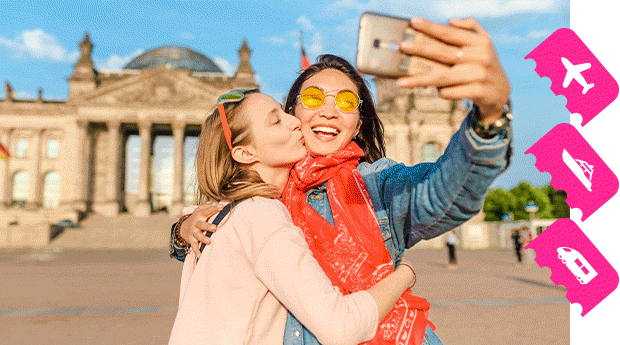Planet Earth is much more LGBTQ+-friendly than it was just three decades ago. But for some queer travellers, certain borders remain uncrossable. Anti-LGBTQ+ laws and policies are on the books in 64 countries, and 12 of those have the death penalty as a possible punishment for consensual same-sex sexual activity. Fourteen countries criminalize the gender identity and/or expression of transgender people, using laws against so-called cross-dressing, impersonation and disguise.
Yet travel is an empowering act, allowing open-minded wanderers to connect with other cultures. We want to go where we want to go. Visiting an unfamiliar or even frightening place can become a life-changing experience. So how can queer travellers stay safe in risky destinations, places where legal protections are limited or nonexistent?
First of all, it’s paramount to research local laws regarding LGBTQ+ people in the jurisdiction you’re planning to visit. It’s also important to research social attitudes toward LGBTQ+ people and how certain laws are enforced. Even in countries where same-sex sexual activity is technically illegal, enforcement varies. Bilal El Hammoumy, founder and travel/outreach director at Inclusive Morocco, says that while same-sex relationships are criminalized under Article 489 of the Moroccan Penal Code, enforcement against citizens is inconsistent.
“Enforcement is even less pursued against foreigners, and throughout history, many open members of the LGBTQ+ community have lived in Morocco openly without persecution,” he says. However, he warns that “arrests and punishments do happen, often influenced by social stigma, public exposure or targeted accusations. Discretion plays a key role in staying safe.” Organizations such as ILGA-Europe track LGBTQ+ legal landscapes, while Equaldex offers an interactive map detailing LGBTQ+ rights by country.
Darren Burn, founder of Out Of Office and CEO of Travel Gay, says it’s important to understand cultural nuances, not just policies.
“In more socially conservative countries, it’s also taboo for straight couples to kiss in public,” says Burn. “Public displays of affection are best avoided, as are excessively revealing outfits. You should also be cautious at passport control, and consider going through separately if you’re travelling with your partner.”
Burn says that when it comes to active enforcement of anti-queer laws, and hostile social attitudes, some destinations pose higher risks than others. He warns travellers off Russia and Uganda, the latter of which still enforces colonial-era anti-LGBTQ+ laws. At the same time, he had a positive experience in the Maldives, where homosexuality is technically illegal under Sharia law but rarely enforced in private tourist areas.
“We’ve been to hotels in the Maldives that have gay managers,” he says. “The staff are always very friendly and welcoming. Sometimes the reality on the ground is very different from what you read.” Of course, choosing LGBTQ+-friendly resorts and hotels vetted by organizations like Out Of Office or the International LGBTQ+ Travel Association (IGLTA) can help travellers find safer spaces even in jurisdictions that are otherwise legally restrictive.
El Hammoumy recalls a visit to Books@Café, a well-known LGBTQ+-friendly space in Amman. “The visit showed me a striking difference between Morocco and Jordan in terms of LGBTQ+ safety and openness,” he says. “It was a moment of reflection: realizing that Morocco, despite its challenges, can sometimes feel like a safer space compared to stricter environments. At the same time, I was deeply humbled by the resilience of Jordan’s LGBTQ+ community. Their ability to embrace their culture while carving out safe spaces was a powerful reminder of our shared strength and pride.”
Queer spaces exist in many places where they’re not permitted or welcome, but they must remain discreet. In Morocco, for instance, the queer social scene generally operates under the radar. Certain venues in cities like Marrakech and Casablanca are only known within the community.
“There are no official or widely recognized LGBTQ+ bars, but certain venues in cities like Marrakech or Casablanca might attract a more inclusive crowd,” says El Hammoumy. Additionally, some hotels and businesses welcome LGBTQ+ guests quietly, even if they do not advertise it. Travellers can often find these spaces through word of mouth, chatting via meet-up apps, or by connecting with underground or informal LGBTQ+ organizations. It can also be helpful to work with local travel companies like Inclusive Morocco, the only queer-run luxury travel organization in the country. For those visiting Morocco, the company serves as a vital resource, offering safety guidance and LGBTQ+-friendly accommodations.
“Our focus is on harm reduction and ensuring that LGBTQ+ individuals have access to safe spaces and knowledgeable local contacts,” El Hammoumy says.
Being a smart LGBTQ+ traveller is not merely about personal safety; it’s also about respecting and lifting up local communities. In countries where being openly LGBTQ+ can be dangerous, supporting these communities requires care and consideration. To support those who face abuse and harassment from homophobic and transphobic authorities and societies, Burn suggests helping out organizations like Rainbow Railroad, which assists LGBTQ+ individuals in escaping persecution. Another way to back local communities is through economic engagement; for example, purchasing from queer artisans can directly benefit them so long as it doesn’t attract unwanted attention.
El Hammoumy discourages the idea of avoiding countries as a form of protest.
“I don’t agree with the boycott method that many LGBTQ+ members follow as it risks alienating local LGBTQ+ communities. It comes from a point of privilege,” he says. “Support does not necessarily need to be financial. Showing up to a country like ours and being visible can go a long way toward erasing the stigma propagated about our community, and it can help change mindsets even if only one single person.”
However careful we are in places that discriminate against us, bad things can still happen. Access to emergency resources is crucial. For U.S. travellers, enrolling in the Smart Traveler Enrollment Program (STEP) provides real-time safety alerts and allows U.S. consular services to find the user in case of an emergency. The Canadian government publishes a list of various ways to contact consular services in case of an emergency, and allows travellers to register so they can be contacted in case of an emergency.
Queer travellers have long navigated a world filled with contradictions, balancing self-expression with self-preservation. Discretion and being observant about the local culture are key skills.
“Being LGBTQ+ in the Arab Islamic world means that we are trying to figure out our sexuality in a different context, with a different baggage of culture, religion and influences,” El Hammoumy says. “The LGBTQ+ experience is not monolithic.”


